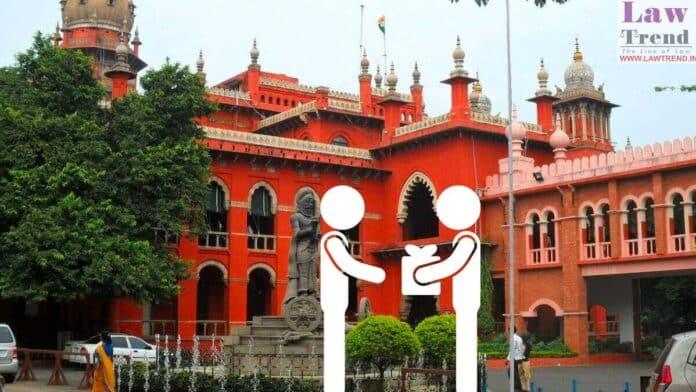In a recent development, the Madras High Court has issued a comprehensive code of conduct for all Judicial Officers serving in the Tamil Nadu State Judicial Service and Puducherry Judicial Service.
This code of conduct aims to establish guidelines and expectations for the judicial officers’ behavior and interactions with the High Court’s Judges.
The instructions, which supersede previous circulars, were issued to ensure professionalism, decorum, and the smooth functioning of the judicial system.
Among the key instructions outlined in the code of conduct are:
- Discontinuation of Presentations: Judicial Officers must refrain from presenting shawls, mementos, bouquets, garlands, fruits, or any other gifts to the Honorable Judges when meeting them at the High Court.
- Protocol Duties: Judicial Officers must no longer wait on the outskirts of towns or cities to receive Judges during official visits. Instead, a responsible staff member should receive the Judges and guide them to their place of accommodation to ensure their safe arrival.
- Restriction on Visiting Judges’ Residences: Judicial Officers are prohibited from visiting the residences of the Judges to seek promotions, transfers, or any kind of personal favor.
- Protocol for Private Visits: During private visits made by the Judges, only the designated Judicial Officer on protocol duty should receive them at the place of accommodation, railway station, or airport, depending on the timing and location of the visit.
- Official Visits during Court Hours: If the Judges visit during court hours, only a responsible staff member should receive them. However, if the visit takes place outside court hours, the highest-ranking Judicial Officer on protocol duty should receive them.
- Court Attendance: Judicial Officers are strictly instructed not to leave the court premises during court hours under any circumstances.
- Communication Protocol: All communications from Judicial Officers must be addressed to the Registry, which will promptly place the documents before the Chief Justice or Portfolio Judges for necessary action.
- Hospitality Restrictions: Judicial Officers are prohibited from accepting any form of hospitality from advocates, litigants, or the general public.
The code of conduct also includes instructions regarding official visits, dress code, presence during Judges’ visits, and various administrative matters. The Madras High Court has emphasized the importance of scrupulous adherence to these instructions by all Judicial Officers.
The Principal District Judges, District Judges, and Heads of Units have been directed to ensure that the code of conduct is followed diligently by all Judicial Officers in their respective jurisdictions.
The issuance of this code of conduct signifies the Madras High Court’s commitment to maintaining the highest standards of professionalism and integrity within the judicial system. By providing clear guidelines, the court aims to ensure the smooth functioning of the Tamil Nadu State Judicial Service and Puducherry Judicial Service.
This development has been welcomed by legal experts, who believe that a well-defined code of conduct will contribute to the transparency, fairness, and efficiency of the judiciary, thereby strengthening public trust in the judicial system.
Case No.:RoO.CoN o.20/2023-COD.B2
Order dated: 21.06.2023




